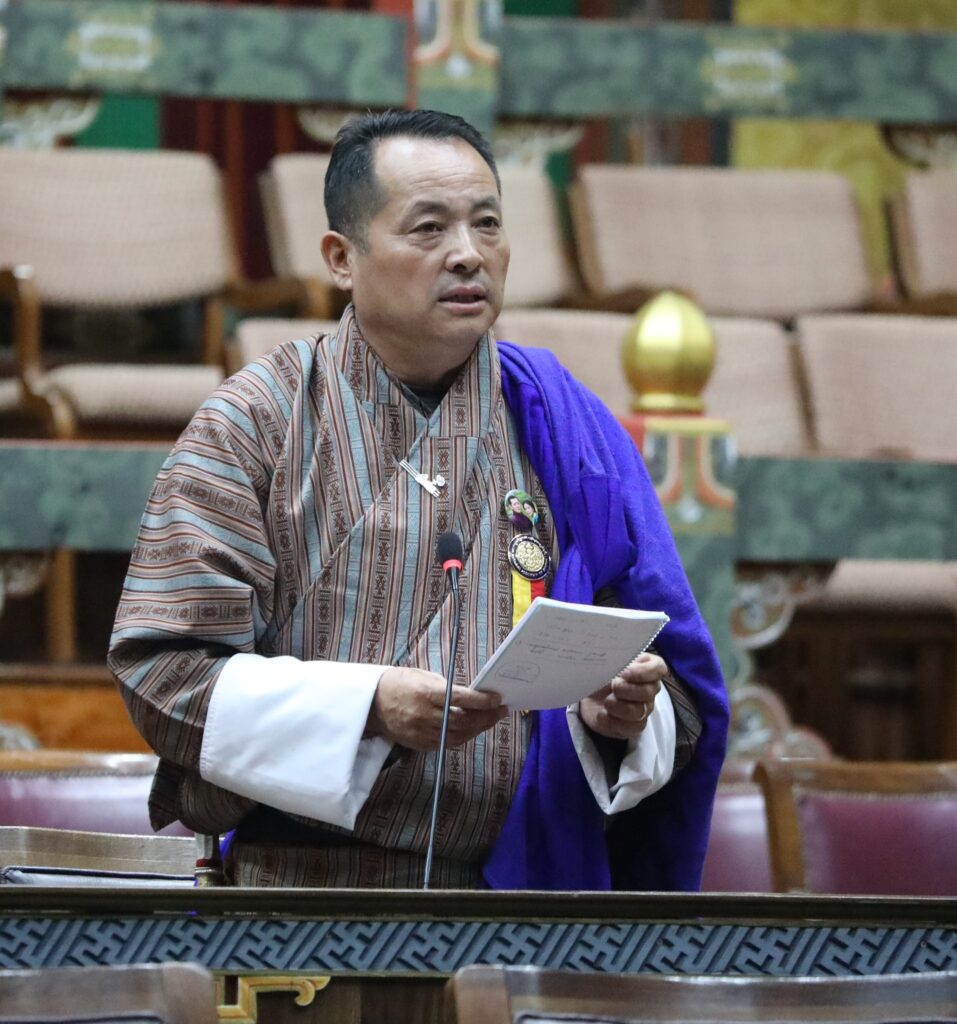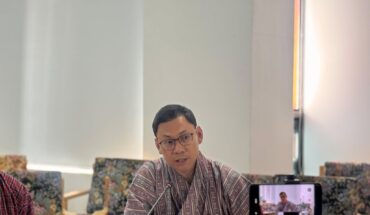
MPs cite dropout risks, inequality, and economic burden; Education Ministry to review by winter session
TIL BDR GHALLEY
Thimphu
The National Assembly overwhelmingly voted to defer the reintroduction of the Class 10 cut-off point, citing potential risks of student dropouts, social inequality, and increased financial strain on families.
Of the 39 Members of Parliament present, 38 voted in favor of the motion, with one abstention, reflecting a 97.4 percent majority.
The motion was moved by the Social and Cultural Committee (SCC), urging the Ministry of Education and Skills Development (MoESD) to review its March 2025 directive that mandated the return of the Class 10 cut-off system for admission into government Class 11 schools.
The SCC Chairperson and MP from Wamrong Lam Dorji stated that the policy was originally introduced due to limited higher secondary infrastructure.
“At the time, it was necessary,” the Chairperson said. “But with 77 higher secondary schools today, we can now accommodate all Class 11 students.”
The policy was abolished in 2019 under the Druk Nyamrup Tshogpa-led government to ensure equal access to education across all socioeconomic backgrounds.
The Chairperson also highlighted concerns raised by students from remote areas. “Students from rural regions are worried. As a committee, we represent the voices of the public,” the Chairperson said.
Public sentiment has played a critical role. Parents and teachers across the country voiced fears that the reintroduction of the cut-off could end educational opportunities for children from disadvantaged backgrounds.
“I have three children, and if the cut-off is reintroduced, I fear my youngest may not be able to continue beyond Class 10,” said Goma Devi, a mother from Samtse.
“Not every child is academically strong, but they still deserve a chance to grow through education,” she said.
Pema Y. Waiba, a parent from Chukha, shared similar views: “My elder son barely passed Class 10, but he is now thriving in Class 12. Not all children shine early. Why should one exam decide their future?”
Teachers also expressed concerns that a rigid system could discourage students who take longer to excel.
“We are seeing students blossom in higher secondary even though they struggled in lower classes,” said Deo Raj, a high school teacher in Samdrup Jongkhar. “The cut-off discourages late bloomers.”
MPs warned that the policy would impose economic burdens on families unable to afford private schooling.
“If students do not get the opportunity to continue their studies, families may be forced to take loans or sell assets, adding to household debt,” said MP Tashi Tenzin of Radhi-Sagteng.
Gelephu MP Harka Singh Tamang argued that reinstating the cut-off would be a regressive move.
“With modern development, I feel reintroducing the cut-off point is not the only way to ensure quality education. A thorough research and reassessment are needed,” he said.
Several parliamentarians stressed the contradiction between the policy and Bhutan’s national development goals.
“Studying only up to Class X for free is not enough,” said MP Naiten Wangchuk of Mongar. “To match international standards, students need qualifications, skills, and knowledge. A Class X education alone does not prepare them for the job market.”
MP Kinzang Wangchuk of Drametse-Ngatshang added, “We had only a few schools like Yangchenphug and Kanglung in the past. But now, infrastructure is no longer an issue.”
However, some MPs expressed concern over declining academic standards. “From PP to Class 3, there are no examinations. Now, even Class 10 students with 40 percent can move on. This will affect employability,” said MP Pema Drukpa from Khamaed-Lunana.
MoESD minister Yeezang De Thapa defended the ministry’s earlier directive, stating that the lack of academic benchmarks has led to complacency.
“When there is no cut-off point, most students become relaxed. They think a pass mark is enough,” she said.
“Students come to me seeking jobs, but most have marks in the 40s and 50s. What kind of job can I give them?” the minister added. “Even for jobs like caretakers or messengers, a minimum qualification of Class 12 is required.”
She warned that removing thresholds could hinder the development of life skills. “Without examinations and a merit-based system, students will not develop resilience and competitiveness,” she said.
Educators, however, challenged this perspective. “Exams do not define a student’s potential,” said Amrit, a teacher from Tsirang. “We need continuous support systems, not barriers.”
Following the Assembly’s decision, the MoESD has committed to a comprehensive review of the policy and will present its findings in the upcoming winter session of Parliament.





